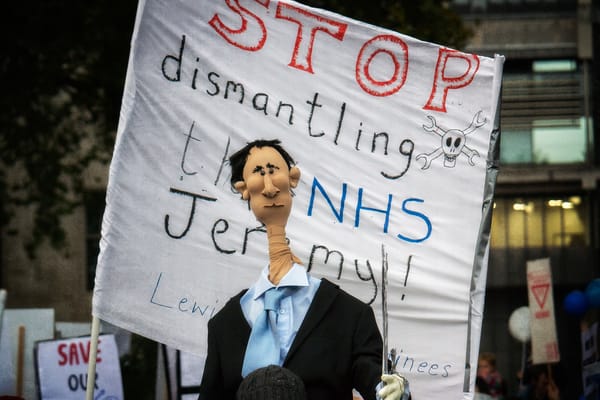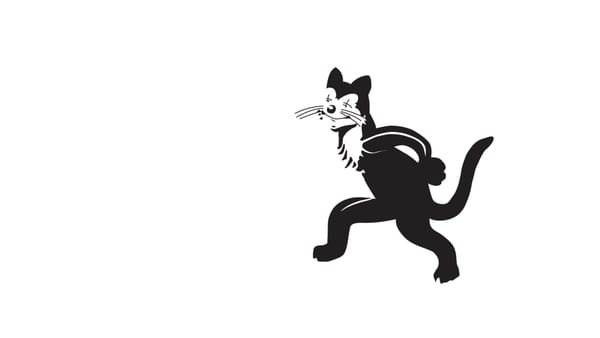Why is fat-shaming the last socially acceptable form of discrimination?
Tessa Davey discusses the abuses, challenges, and stigmas faced by fat people in our modern, Western society.

Being fat is seen as the worst thing that a person can be. Fat is often synonymous with lazy, slovenly, unattractive, and unhealthy, and becomes a reason to deny someone any semblance of humanity – fat people aren’t seen as worthy.
But why are fat people so stigmatised in this way? Fat has a greater potential for discrimination by potential employers than gender, race or sexuality. Somehow a fat person with the same qualification level is seen as being far less capable than someone thin. After all, if we can’t keep our weight under control, how can we possibly do anything else?
For many people, this discrimination isn’t something they’re ashamed of. Donald Trump has happily likened overweight people to animals – it seems ostensibly obvious to him that someone who is a model of health would work more effectively than someone who is morbidly obese.
But of course, it isn’t quite as simple as this. Not everyone slim is the incredibly disciplined health guru hitting the gym every day before carefully preparing their perfectly balanced, kale-based meals, all while getting everything else in their life done in good time. Most fat people simply came out that way in the genetic lottery, some use food as a vice (in the same way someone may use cigarettes, makeup, or video games), and others simply reject the societal pressure to be thin at all costs. Being fat isn’t a conclusive demonstration that you are less efficient or skilled, it is only a demonstration that you are fat.

But even if we allow this reasoning – that if you’re fat, you’re less capable than someone thin – how does being less competent make someone worthy of abuse? Or if it’s abuse justified by false health concerns, why does being less healthy make someone less deserving of decent treatment and dignity?
You certainly wouldn’t tell anyone recovering from a debilitating injury that they deserve to be hounded with negativity as a motivation for recovery. Even falling prey to the false hypothesis that being fat is purely self-imposed, it wouldn’t be acceptable to abuse a smoker or someone suffering from sunburn in the street. Why does fat shaming constitute the last remaining acceptable form of prejudice?
It is simply not acceptable to be fat in this world, even if you take all the disapproval that comes along with it. Purely by existing as a fat person who doesn’t hate myself and hide away, I am automatically making a statement and putting my body up for debate. As someone fat, you will be patronised, questioned, and judged, and you will be accused of the crime of making other people think it’s okay not to hate themselves. Glorifying obesity is a catchphrase of our generation, one that isolates fat people and criminalises them for their very existence.
Why don’t fat people’s bodies deserve the same respect as slim people’s bodies?
When it comes to being fat, the only way that that society will accept that fat people are (as they surely ought to be) aware that obesity is unhealthy and are striving to improve their health (because don’t the taxpayers providing their healthcare deserve that?) is if they hate themselves. We’re lucky to live in a world where we’re surrounded by campaigns calling out the media for its damaging impact on the self-esteem of young, beautiful, slim women, who feel like they can’t compete with these front page models. The self-esteem of young women is to be valued, unless, that is, your BMI is above 25.
If you are overweight, you are clearly lacking in any sort of impulse control, and so the only way you’ll ever change is if your self-loathing forces you to. Somehow, a lot of the non-fat population (and some of the fat population too) have taken it upon themselves to help these poor, plump souls by harassing and abusing them constantly. Mistreatment is, afterall, the best motivator. And fat people can’t have feelings anyway.

Why don’t fat people’s bodies deserve the same respect as slim people’s bodies? It shouldn’t be the case that as soon as you’re carrying an extra few pounds, you no longer have ownership of your body, and it becomes every man and his dog’s right to make comments and suggestions. Why are we forced to apologise and make excuses for our appearance, when it’s so unclear to whom we owe this apology? If I am fat, who am I truly hurting? The only aggrieved parties are the fat-phobics who feel uncomfortable with my very existence, and I’m not sure that I care about that.
It seems to me that it has become circular. People are absolutely terrified of being fat, but this fear is purely due to the climate that fat-shamers create and contribute to, that makes everything so much more difficult for fat people.
No one is denying that being obese does, on average, put an additional strain on your health. Some of us, the fat people of the world, are actively trying to improve our health (as are many slim people), whether by trying to lose weight or not, and some of us aren’t, but that isn’t really any of your business. What we want is to be treated like the actual human people we are, even if that means that you have to bite your tongue on that not-so-helpful piece of advice occasionally. Does that sound so hard?







